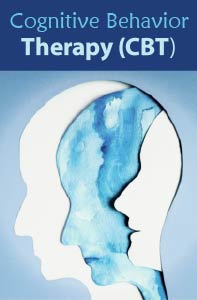$29

Related Courses

Poise: The Psychology of Posture

Helping Your Young Client Persevere in the Face of Learning Differences
Cognitive Behavior Therapy (CBT)
Louis R. Franzini, PhD
CE Credit: 2 Hours
Target Audience: Psychology CE | Counseling CE | Social Work CE | Marriage & Family Therapy CE | School Psychology CE
Learning Level: Intermediate
Course Abstract
Cognitive Behavior Therapy (CBT) is a 2-hour online continuing education (CE) course that provides clinicians with practical guidance in understanding and using cognitive behavior therapy.
The present-day popular psychological therapeutic orientation known as cognitive behavior therapy (CBT) is a hybrid of three historical streams of influence: behavior therapy, cognitive therapy, and rational-emotive therapy. Problematic behaviors addressed during treatment are assumed to have been acquired by learned processes of conditioning or modeling. Those behaviors may be overt (readily observable) and/or covert (such as thinking, feeling, emotional arousal, sexual arousal, expectations, and so on).
Advances in CBT have been made based on both research and clinical practice. Importantly, CBT is an approach for which there is ample scientific evidence that the methods that have been developed actually produce change. In this manner, CBT differs from many other forms of psychological treatment.
This course describes the developmental trajectory of CBT and outlines its major tenets and techniques, including the sailboat metaphor, the lighthouse metaphor, and goal visualization.
This course ends by reviewing a case history, which is published by the American Psychological Association with permission and recommended by the APA Clinical Practice Guideline for the treatment of PTSD.
Course #21-54 | 2021 | 34 pages | 15 posttest questions
Learning Objectives
Professional Development Resources is approved by the American Psychological Association (APA) to sponsor continuing education for psychologists. Professional Development Resources maintains responsibility for this program and its content. Professional Development Resources is also approved by the National Board of Certified Counselors (NBCC ACEP #5590); the Association of Social Work Boards (ASWB #1046, ACE Program); the American Occupational Therapy Association (AOTA #3159); the Commission on Dietetic Registration (CDR #PR001); the Alabama State Board of Occupational Therapy; the Arizona Board of Occupational Therapy Examiners; the Florida Boards of Social Work, Mental Health Counseling, and Marriage and Family Therapy (#BAP346), Psychology & School Psychology (#50-1635), Dietetics & Nutrition (#50-1635), and Occupational Therapy Practice (#34); the Georgia State Board of Occupational Therapy; the New York State Education Department's State Board for Mental Health Practitioners as an approved provider of continuing education for licensed mental health counselors (#MHC-0135), licensed marriage and family therapists (#MFT-0100 - Note: New York MFTs will receive 2 continuing education credit(s) for completing this self-study course), and licensed social workers (#SW-0664); the Ohio Counselor, Social Worker, and Marriage & Family Therapist Board (#RCST100501 - Note: Ohio MFTs completing this course will receive 2 clinical continuing education credit(s)); the South Carolina Board of Professional Counselors & MFTs (#193); the Texas Board of Examiners of Marriage & Family Therapists (#114) and State Board of Social Worker Examiners (#5678); and is CE Broker compliant (#50-1635 - all courses are reported within two business days of completion).
This online course provides instant access to the course materials (PDF download) and CE test. The course is text-based (reading) and the CE test is open-book (you can print the test to mark your answers on it while reading the course document).
Successful completion of this course involves passing an online test (80% required, 3 chances to take) and we ask that you also complete a brief course evaluation. Click here to learn more.
Have a question? Contact us. We’re here to help!
Louis R. Franzini, PhD, received his B.S. degree in Psychology from the University of Pittsburgh, his M.A. degree in Clinical Psychology at the University of Toledo, and his Ph.D. in Clinical Psychology from the University of Pittsburgh. He then completed a Postdoctoral Fellowship in Behavior Modification at the State University of New York at Stony Brook (now Stony Brook University). Following the postdoctoral program Dr. Franzini joined the Psychology Department at San Diego State University, where he spent his entire academic career. He retired as Emeritus Professor of Psychology. His international academic experience included appointments as Distinguished Professor of Psychology at the Universite Catholique de Louvain, Louvain-le-Neuve, Belgium and Senior Fellow in the School of Accountancy and Business, Human Resource and Quality Management Division at Nanyang Technological University, Singapore. Dr. Franzini is licensed as a psychologist in Florida and in California.
Financial: Dr. Franzini receives royalties on his books from John Wiley & Sons, Rowman and Littlefield, Square One Publishers, Sage Publications and from Professional Development Resources on sales of his courses.
Nonfinancial: No relevant nonfinancial relationship exists.
Customer Reviews